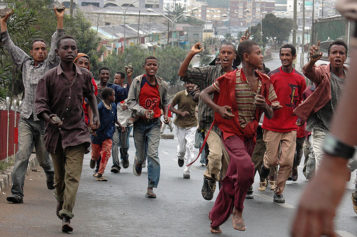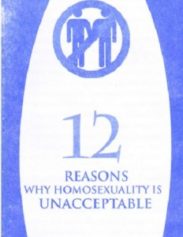As the world contemplates the possibility that an African could be chosen as the next pope, the leading candidate, Cardinal Peter Turkson of Ghana, upset many observers, particularly in the West, when he suggested in an interview that homosexual priests were the cause of the church sex scandal, and such a scandal is not a problem in Africa because homosexuality is not allowed on the continent.
“African traditional systems kind of protect or have protected its population against this tendency,” Turkson said during an interview with Christiane Amanpour of CNN. “Because in several communities, in several cultures in Africa, homosexuality or for that matter any affair between two sexes of the same kind, are not countenanced in our society.
“So that cultural taboo, that tradition has been there,” said Turkson, 64, who is the head of a major Vatican department, the Pontifical Council for Justice and Peace. “It has served to keep it out.”
Turkson is given 5/2 odds of being selected next month by the College of Cardinals, just below the leading odds-on candidate, Italian Cardinal Angelo Scola, the Archbishop of Milan, who is given 9/4 odds.
But Turkson probably didn’t help his chances with comments that many in the U.S. and Europe will find outrageous — that there is a link between child molestation and homosexuality, and that homosexuality can be controlled if there are laws and societal pressures against it.
“Cardinal Turkson’s comments show a surprisingly callous disregard for the human rights of millions of people worldwide,” said Ruth Hunt, director of public affairs for the London-based gay rights group Stonewall.
The treatment of homosexuals has long been an issue on which African nations have fought with human rights activists from the West. Homosexuality is illegal in 37 African countries — with Uganda even considering the death penalty for those found guilty of “aggravated homosexuality.” Activists say few Africans are openly gay, fearing imprisonment, violence and loss of jobs.
A spokesman for the Survivors Network of Those Abused by Priests said, “We hear less about clergy sex crimes and cover-ups in Africa for the same reasons we do throughout the developing world — there tends to be lesser funding for law enforcement, less vigorous civil justice systems, less independent journalism, and an even greater power and wealth difference between church officials and their congregants.”
Meanwhile, a well-known Brazilian theologian, Leonardo Boff, said Barack Obama’s presence as the U.S. president could help cardinals feel comfortable with selecting a black man to succeed Pope Benedict XVI.
“Without a doubt Obama’s presence is going to be felt among the cardinals,” said Boff, a former Franciscan friar who studied with the current pope, Joseph Ratzinger, at the University of Munich in the 1960s. “We already have a black president, so why not a black religious president?”
But Boff — who left the church in 1992 after he got into a tiff with Ratzinger over a book Boff had written criticizing church leadership — predicted difficulties for Turkson because of the scarcity of cardinals of color among the 117 named by Benedict to choose his successor.
Still, Turkson also is considered a favorite of Pope Benedict’s, which could work in his favor.
Boff suggested that choosing a Latin American or African pope could also help Vatican finances by raising money and drawing more parishioners at a time when parishes in Germany and the U.S. are still reeling from the cost of lawsuits and dwindling church attendance sparked by the sex-abuse scandal.

